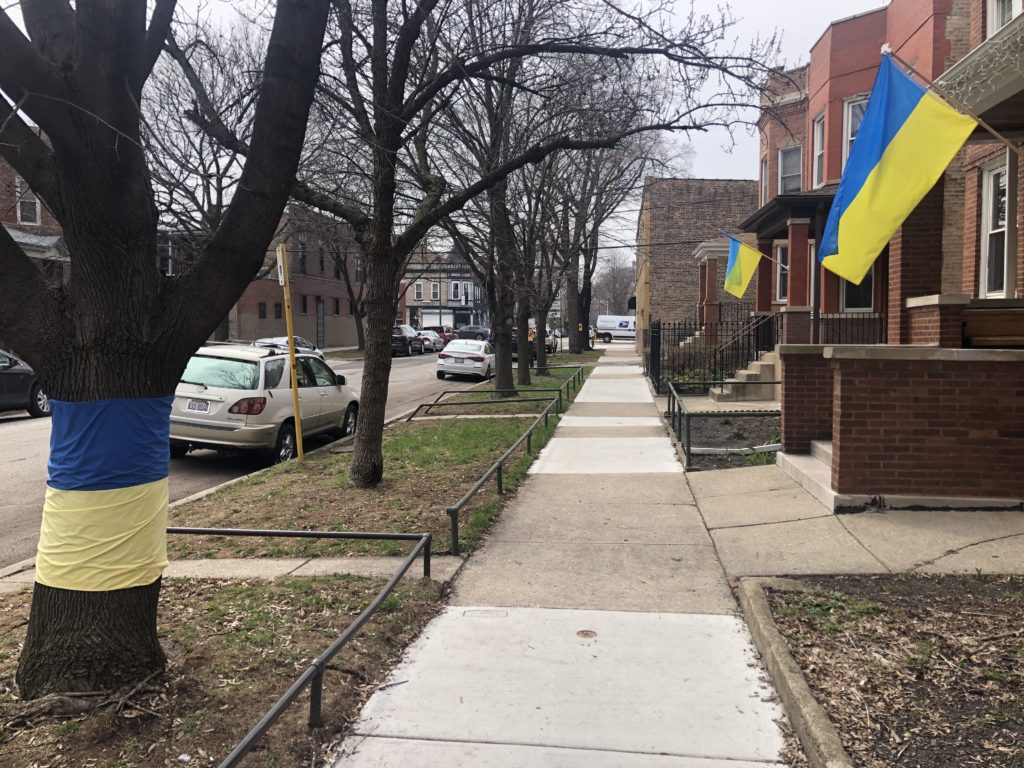To the United Nations yesterday, Volodymyr Zelensky said:
I am addressing you on behalf of the people who honor the memory of the deceased everyday. Everyday, in the morning.
The memory of the killed civilians.
Who were shot in the back of the head or in the eye after being tortured. Who were shot just on the streets.
Who were thrown into the well, so that they die there in suffering.
Who were killed in apartments, houses, blown up by grenades. Who were crushed by tanks in civilian cars in the middle of the road. For fun.
Whose limbs were cut off, whose throat was cut. Who were raped and killed in front of their own children.
Their tongues were torn out only because they did not hear from them what they wanted to hear.
“Are you ready to close the U.N.?” Mr. Zelensky asked. “Do you think that the time of international law is gone? If your answer is no, then you need to act immediately.”
I feel I’ve been remiss, not writing about the Ukrainian president more here at Writing Boots—though we do run most of his best speeches at ProRhetoric.com.
Part of it’s because I’ve been traveling for much of the time this Ukraine war has been on, and catching these speeches in fragments. Part of it is because the whole subject is so depressing—even more so, maybe, contemplated from inside my neighborhood, Chicago’s grief-stricken Ukrainian village.

But partly I haven’t written about Zelensky because I’m better at illuminating the badness of failed communications than at celebrating the genius of great communications. (I was the same way during Churchill’s finest hour, ask anyone.)
Especially when the genius isn’t rhetorical tricks and personal charisma—but rather pure integrity and perspective and intellect and discipline.
Yes, I’ve noted the customized cultural references that a speechwriter is surely helping to furnish for each audience Zelensky addresses. But I’ve been more quietly impressed by a constant argument that’s both insistent and understanding: An expression of impatience, patiently expressed—outrage, calmly communicated.
For 40 days Zelensky has been asking the U.S. and NATO for more. For 40 days the U.S. and NATO have given more—without feeling insulted by Zelensky’s inevitable return, which is: “We appreciate what you are doing but it is not enough. We need more.”
He makes his grim and repeated request without accusing the U.S. and NATO of being cowardly, or without taking a tone of exasperation—even though with bombs falling on your country and mass murder taking place in your streets, exasperation is probably something he feels every day.
“Hey stupid” is no way to start an argument, as my buddy Mike Long says. “Hey yella bellies” isn’t, either. And as Will Smith reminded us last week, going off the handle is usually not good for the personal brand.
And Zelenksy’s identity, as a clearly sophisticated, sane and courageous representative of a Ukrainian population that most Americans knew little about about going into this war—that is worth everything, even to a country that may not feel it has any more to lose.
Zelensky is a Ukrainian hero. And the way his savvy example has helped unite every country but China and India, not just against Russia, but in earnest support of Ukraine—I’d say he’s a hero to everyone yet alive on the planet Earth.
Leave a Reply